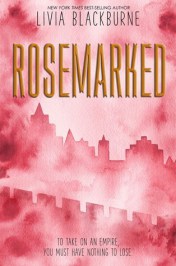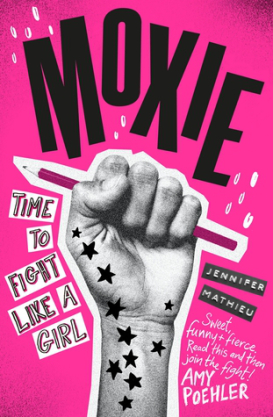 ★★★★
★★★★
I did not expect this book to be as good as it was. I put off reading it, thinking it was just another typical YA fantasy, but the characters won my heart in the end. The plot, although not action-packed, made me want to keep reading, and the setting was fantastic.
Zivah and Dineas are both under the rule of the Amparan empire. Zivah’s people of Dara are peaceful, and acquiesce to the empire’s demands, but after Dara’s healers failed to cure the empire’s soldiers after an outbreak of the deadly rose plague, their village is put under the spotlight. Now rosemarked from contracting the plague, Zivah is unable to practice her art of healing that she has trained so hard for. Meanwhile, Dineas has just escaped from the Amparan prison and is reunited with his people, the Monyars. He wishes vengeance for the brutalities done on him, and a way to stop the Amparans from conquering his people. A chance encounter between Dineas and Zivah spawns a plan that could bring the empire to its knees, if the pair can play their cards right.
One of the aspects of this book that stood out to me the most was the use of Dineas’s amnesia to disguise him as the perfect spy. I’m not sure if memory works exactly how it does in the book, with Dineas regaining his memory once he drinks a potion, but regardless the idea was fascinating. He certainly struggles with the things he’s done when he’s amnesic, and it’s hard for him to reconcile with the loyal Amparan soldier and the Monyar rebel that exist simultaneously inside him. The relationship between Zivah and the Dineas with his memory versus Dineas without his memory was such a contrast. Seeing Zivah have to deal with both versions of Dineas was trippy, and it was admirable how she handled it. It definitely added a new layer of complexity to their relationship.
Zivah and Dineas were likable characters, but Zivah was definitely my favorite. They each have different strengths, Dineas with his way with weapons and Zivah with her medicine, but it’s seen through their actions that they are both very resilient and decisive. We see Dineas’s struggle with who he is with his full memories and without, and how he teeters between respect for the Amparan general and revulsion. Watching Zivah come to terms with her impeding death and still have the will to make a difference was inspiring. Her way with the herbs and plants and how she can both give life and deliver death shows that power manifests itself differently, and not just as physical strength. It was refreshing to read about characters whose skills were because of good old hard work and effort, not just because they were born with some magical power. It made them more human, more relatable, and easier to care about.
Most of the book takes place in the Amparan capital. Zivah is enclosed in the Rosemarked city, while Dineas stays in the barracks, disguised as an Amparan soldier. The history of all the people in the world was given enough backstory to be comprehendible and fleshed out the world. The landscape and climate was described, as well as the cultural customs of the types of people. The world was realistic, and I had no problem imagining it.
The beginning few scenes, where Dineas escapes from the prison and incidentally finds his people again, or where Zivah passes the healer’s test read off as a bit staged, but stick with it. The scenes start connecting better, and the book only gets better. If you’re interested in a fantasy novel with fleshed-put characters, an intriguing plot, and a unique idea, Rosemarked could be the one for you.
Advertisements Share this:




